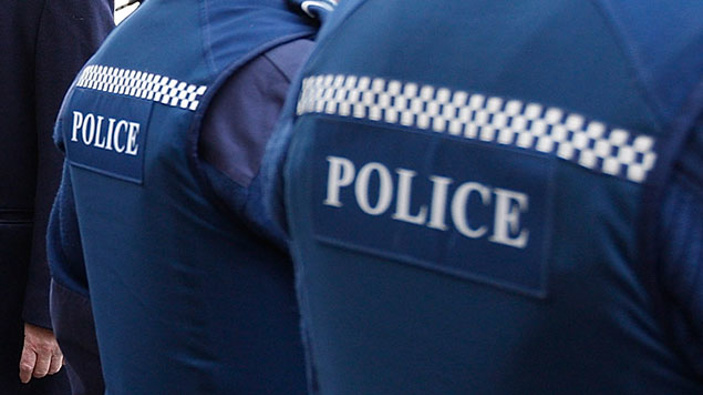There simply must be a better way of dealing with mental health patients rather than relying on police. For years now, police men and women have been left to pick up the pieces of broken minds because of a lack of resources within the beleaguered mental health sector. But more than the lack of resources is the lack of will on the part of the mental health sector. When you're overworked, when you're under resourced, and you have somebody else doing the heavy lifting, (that is the police) why on Earth would you make more work for yourself? Why on Earth would you if you were a crisis counsellor, a mental health worker, go out on strike and demand that you be given resourcing for crisis teams to go and pick up the mentally unwell and stop the police doing it? You're just not going to, are you? You've got bigger fish to fry simply putting one foot in front of the other and getting through the shift.
But it is simply not right that the police are the babysitters for the mentally ill, simply because no other government agency will do it. They won't, and they know the police are last resort. Hospital staff say they can't be left to look after people who are a danger to themselves and other people. They don't have the resources or the personnel, and I have seen the charge nurses in ED’s going no, no, you needn't think you're leaving her here to the police officers who bring them in. I haven't got the people. I cannot have two or three nurses sitting here looking after this person while we wait for them to be seen, when really there's nothing physically wrong with them. Nothing. I've got screaming babies running high temperatures. I've got people who can't breathe. I've got broken arms. I've got seven ambulances out the back.
And the police can't leave somebody who is having an episode on their own. And the reason they can't is because nobody else will take the responsibility and nobody else cares, because they have to care more about what's in front of them. Mental health workers say they simply can't produce crisis teams out of thin air, people who are trained to defuse tense situations and provide the sort of triaging necessary when dealing with somebody who's in the midst of a mental health crisis. But that's not the job of the police, either. And yet they're left with it because they can't strike. They can't lobby, and they can't strike, and they can't refuse. And so, because of that, other government agencies are using and abusing them. The police in the past haven't been able to say we haven't got the staff either, and besides, this is not our job. Until now.
Recent changes have seen officers not attending 111 calls relating to mental health if there is no immediate risk to safety or if it's deemed no immediate risk to safety. There are plans to transfer some of those 111 calls to the non-emergency 105 line, and police have been directed that they should only spend a maximum of 60 minutes waiting in ED’s with mental health patients, then it becomes somebody else's problem. I mean, 60 minutes, you're not going to be seen in 60 minutes, but they are going to have to walk away and then it becomes the responsibility of the overworked ED departments. At least they have the luxury of striking. The nurses can say no, we're not doing this until we get the staff, until we get the highly trained staff we need to be able to manage these patients. The police don't have that option. It's the mental health workers and the health agencies who need to be lobbying for extra resources, extra staff, the ability to care for these people, not the police. And what the hell are the police doing there in the first place? Most of these patients that they're dealing with are sad, not bad. They're just very sad people in the midst of a mental health crisis who haven't committed a crime. What the hell are the police doing there? They're there because it's been dumped on them, because other agencies know they can't refuse.
Mark Mitchell said yesterday that police need to draw a line in the sand.
“There's always going to be times when police are going to be required, but there's many times that there aren't, and I think that the rest of the system has got used to always having the police. The police have always been seen as that 24/7 government agency and over time, they've picked up a whole lot of work that is not their core role, and other agencies are going to have to step up. They are going to have to build out some more capability. We are going to have to get smart around triaging and, and identifying what the actual need is and how we best respond to that. I know that it's been about a 60% increase in mental health call outs for police. Like I said to you that that is not sustainable.
“Look, if I use another example, I've been out on night shift with the staff, you had an ICAR, an incident car which has two police officers in it, that was called to a young woman that was having thoughts of self harm, a 19 year old. She needs proper support. She needs proper mental health and health for support wrapped around her. Those police officers were tied up for an entire shift sitting in an ED looking after her. They’re not trained to do that. And when people are actually putting up their hands when they are having to try and survive a violent domestic and there isn't a police car to attend because they're sitting in an ED babysitting and looking after someone that should actually be getting some proper mental health support, then the system is not working properly. It's certainly not working properly for us as a country. It's not working properly for the victims that actually need that support, need the police there when they put their hand up for help.”
Amen to that.
Where should people go when a family member is having a mental health crisis? Surely to goodness the first port of call would be a mental health crisis team, not the police. When the asylums were closed, when the mental hospitals were closed, families, patients, the community were promised that there would be the care necessary for those who find life tough. That hasn't happened. And there needs to be a line drawn in the sand. Just because the police have been the last resort for so many years, it's time to stop and make the agencies that should be in charge of these people. That should be giving them the help and the succour and the sort of tools they need to try and rebuild their life. It's mental health agencies, public health agencies job, not the job of police. Let the police get back to policing.
Take your Radio, Podcasts and Music with you










